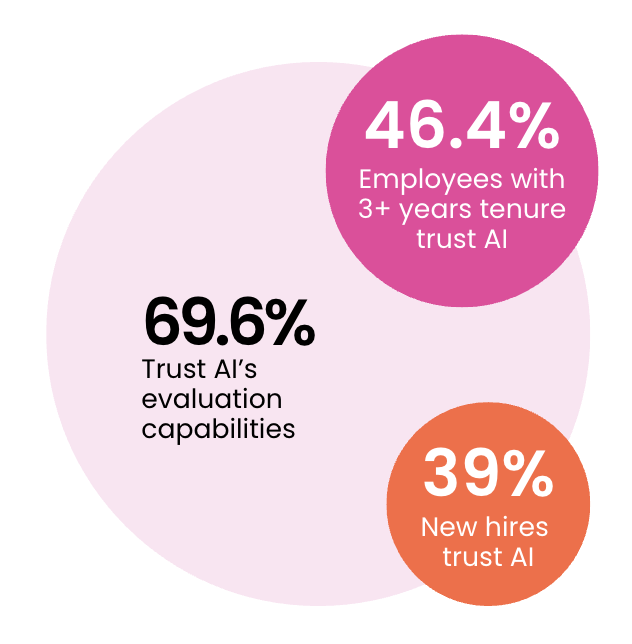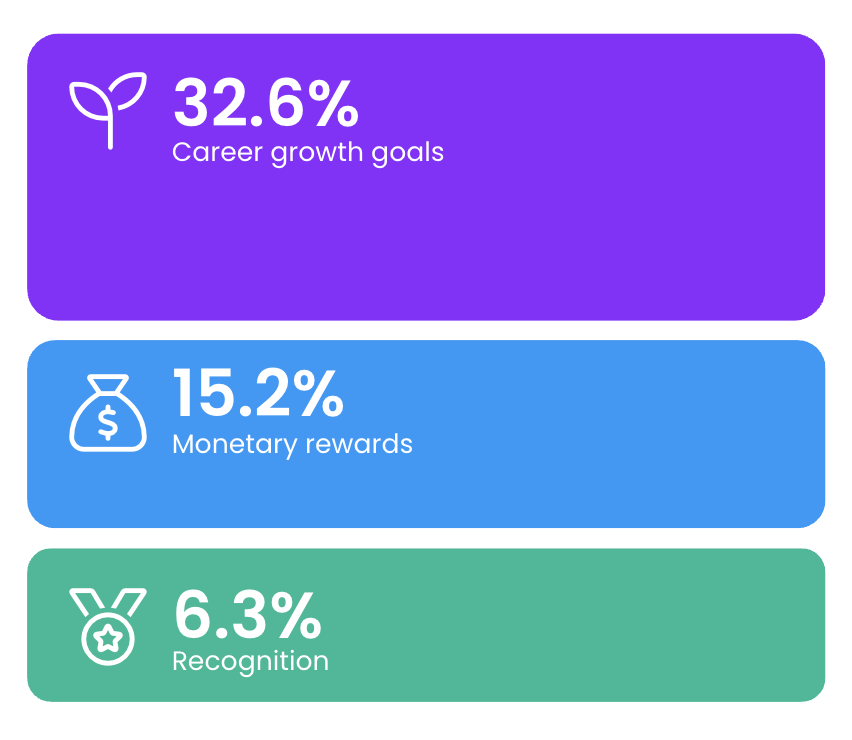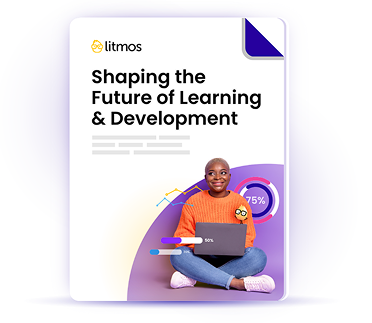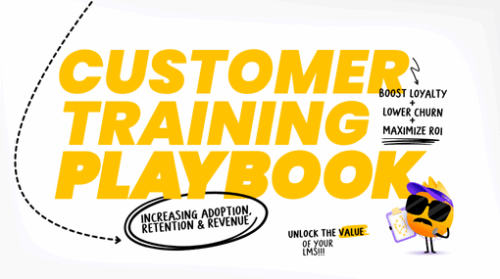Shaping the Future of Learning & Development:
Harnessing Employee Insights for Smarter Learning Experiences
The future of learning and development (L&D) depends on organizations embracing innovation, especially through AI and personalized, employee-centered training strategies. To better understand current trends and expectations, Litmos surveyed 1,000 workers in December 2024. The results show strong demand for professional development, with career growth being a top motivator. However, access and engagement remain uneven. The findings emphasize the importance of flexible, tech-driven approaches that align employee learning with business goals—and highlight the value of listening to employees as a starting point for building more impactful L&D strategies.
73%
of all respondents participate in company-sponsored training or professional development programs at least one time a year.
82.7%
of employees consider professional development essential to their success, yet nearly a third never participate in company-sponsored training.
58.4%
of workers who currently use AI for their jobs would also like to see the technology used to personalize their training experiences.
Key findings:
AI’s Role in Shaping Quality Learning Experiences
A strong correlation exists between employee tenure and trust in AI. Specifically, employees with three or more years of tenure are more likely to trust it, with 46.4% expressing confidence in AI’s ability to align their professional growth with organizational goals. Only 39% of newer hires are in agreement.
Most Desired AI Capabilities for LMS Include Personalization and Feedback
The advanced capabilities of AI-driven platforms are generating interest in specialized training features, like personalized learning paths, real-time feedback, chatbot support, and skill gap analysis. These innovative functionalities offer a range of benefits, such as adapting content based on a learner’s progress to provide more challenging material when they’re ready or to offer extra support when needed.
Employees who believe AI-enhanced training would improve their overall L&D experience are most interested in:

40%
Personalized Learning Paths
They want AI to recommend training tailored to their unique roles and aspirations.
36.1%
Real-Time Feedback
They want instant feedback to improve learning outcomes and employee confidence.
35.1%
Chatbot Support
They want immediate assistance to ensure seamless accessibility and use of training platforms.
27.7%
Skill Gap Analysis
They want help identifying critical development areas.
Engaged Employees Grow and Stay
When it comes to professional development, career growth is a far stronger motivator than money. Survey data shows that 32.6% of employees prioritize career advancement as their main reason for engaging in training—more than double the 15.2% driven by monetary incentives.
While financial rewards still matter, employees are more motivated by long-term growth than short-term gains. Recognition also plays a role, with 6.3% citing acknowledgment as a key driver for participation.

Digital Learning Drives Employee Engagement and Retention
Retaining employees offers significant financial benefits to companies by reducing recruitment and training costs while preserving productivity and expertise within the organization. One of the most effective ways to drive this engagement, and ultimately retention, is by offering training opportunities that align with employees’ career goals and preferred learning methods. Increasingly, those preferences are shifting toward digital learning formats.
65.5% of survey participants engaged in training that incorporated digital tools in the past 12 months. Impressively, 79% reported high satisfaction with the accessibility of these digital resources. Given these preferences, investing in digital and structured professional development programs is a clear way for companies to keep employees engaged and committed long-term.

Access to Preferred Training Isn’t Enough – Employees Need Support and Control
Personalized learning is a powerful way for organizations to show their commitment to employee growth. By providing the right support and resources, companies can help employees map their career paths while ensuring they develop the skills the business values.
However, despite having access to training options that align with their learning preferences, many employees feel limited in their ability to choose their own development opportunities.
45% of surveyed employees report having little to no control over the programs they participate in. Additionally, while 75% say they receive moderate to strong career growth support from their employers, 34% feel they lack sufficient guidance. This gap highlights the need for organizations to empower employees with greater autonomy and support to shape their own learning experiences.
Of employees receive moderate to strong career growth support
Of employees report having little to no control over the programs they participate in
Of employees feel
they lack sufficient
guidance
What is the purpose of this report?
Who participated in the survey behind this report?
Why focus on AI in learning and development?
What key trends emerged from the survey?
How can organizations use this report?
This report reinforces what forward-thinking organizations already know: employees want more than just training—they want growth, autonomy, and relevance. By listening to their needs and embracing tools like AI to personalize learning, we can create development experiences that truly empower people and drive business impact.”
Dr. Jill Stefaniak, Chief Learning Officer










